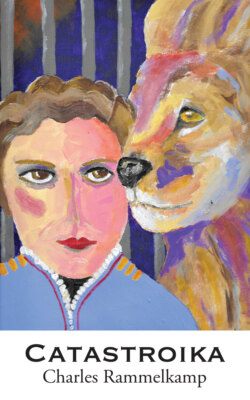Читать книгу Catastroika - Charles Rammelkamp - Страница 9
На сайте Литреса книга снята с продажи.
ОглавлениеForeword
Grigory Rasputin is an endlessly fascinating character. Apart from his role in Russian history, which has constantly been revised, revisited, reconsidered, the many works of historical analysis in which he figures, Rasputin is a ubiquitous figure in popular culture. The Rasputin character appears in operas, plays, comics, novels, songs and video games: he’s everywhere. He’s been played by John Belushi in a Saturday Night Live sketch, Alan Rickman in an HBO film, Gerard Depardieu in a French-Russian collaboration, Raspoutine. He’s the villain in 2004’s Hellboy. He’s appeared in an episode of Buffy the Vampire Slayer as a demon, and as a sorcerer who sells his soul for power in the Disney animation, Anastasia. He’s even the title figure in a 1970’s disco song, “Rasputin,” by the German band, Boney M, a number one hit in Germany and Australia, number 2 in the UK charts. The song has been covered by bands ranging from the Finnish band Turisas as a folk metal song to Boiled in Lead as a folk punk song. A Washington DC band, Ra Ra Rasputin, even takes its name from the song.
There lived a certain man in Russia long ago.
He was big and strong, in his eyes a flaming glow.
The song goes on:
Ra ra Rasputin
Lover of the Russian queen
There was a cat that really was gone
Ra ra Rasputin
Russia’s greatest love machine.
Given all this, how could I even begin to find a new angle? But as it turns out, Rasputin’s daughter Maria was no less fascinating. The only member of the family to escape Russia after the revolution, she became a cabaret dancer, a lion tamer in the Ringling Brothers’ circus, an American citizen, a Rosie-the-riveter in the American war effort during the Second World War. She also wrote several memoirs.
Half the poems in Catastroika, which covers more than a century, are in Maria’s voice, and of course her father is among the many issues she addresses. The other half are in the voice of Sasha Federmesser, a fictional Russian Jew who likewise escapes Russia during the turmoil of the early twentieth century, making his way to Baltimore. Russian anti-Semitism is another literary and historical theme.
With the United States’ complicated relationship with Russia back in the news, I hope that the historical sketch of the Russian empire portrayed in Catastroika sheds some light on a fascinating, often troubled culture.
—Charles Rammelkamp
December, 2019
